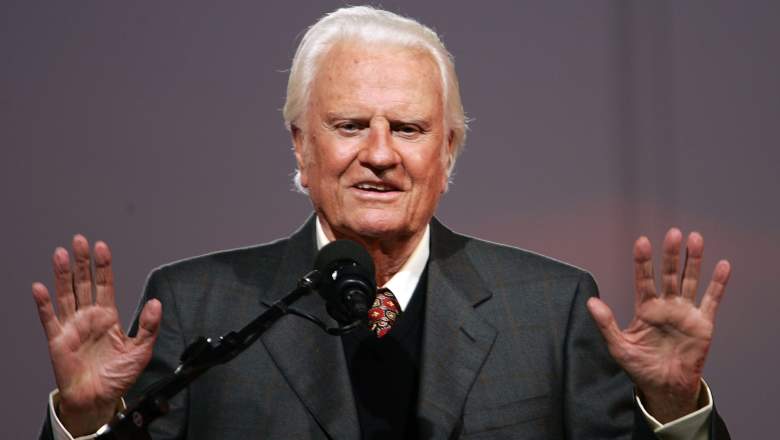
Getty
Today, Billy Graham is lying in honor at the U.S. Capitol Building, only the fourth private citizen to be given this honor. You may have heard some people also using the terms “lying in repose” and “lying in state.” How do these terms differ from one another? Read on to find out why Graham’s viewing is being called “lying in honor” instead of the other two terms.
Lying in Repose
Prior to lying in honor at the U.S. Capitol, Graham lay in repose on February 26 and 27 at the Billy Graham Library. Thousands visited and paid the evangelist their respects. Lying in repose is actually different from lying in honor or lying in state. Lying in repose typically refers to when the casket of someone of high stature, such as a government official, can be publicly viewed in a building other than the Rotunda, so the public can pay their respects. Sometimes the term is used interchangeably, and some definitions present it as being a public viewing that is not a government building. However, Justice Antonin Scalia lay in repose at the Supreme Court Building, so the “non-government building” definition is not entirely accurate. Nancy Reagan lay in repose at the Ronald Reagan Presidential Library.
Sen. Majority Leader Robert Byrd, the longest serving Senator in U.S. history, laid in repose in the Senate chamber after he passed. He did not lie in state or in honor in the Rotunda.
Lying in Honor
Lying in honor is reserved only for private citizens, who are given the honor of having their casket placed in the U.S. Capitol Rotunda for public viewing. Including Billy Graham, only four private citizens have been given this honor. There are no official rules that dictate who can lie in state or who can lie in honor, except that customarily only government officials can lie in state, versus private citizens who can lie in honor. The casket is typically guarded by the U.S. Capitol Police. The decision to grant this honor is made by a concurrent resolution of the House and Senate, and can be granted to anyone who has given a distinguished service, with the family’s approval. The only four citizens who have been given this honor are Rosa Parks and U.S. Capitol Police Officers Jacob Chestnut and John Gibson.
Lying in State
Lying in state is a rare honor reserved for select elected officials and military officers. They are granted the honor of having their casket placed in the Rotunda of the U.S. Capitol for public viewing. Members of the armed forces guard the casket, each representing one of the branches, and periodically rotate. Customarily, only Presidents, military commanders, and members of Congress lie in state. For Presidents and former Presidents, the honor is automatic.
The first person to lie in state was Henry Clay in 1852. More recently, those who lay in state included President John F. Kennedy, FBI Director J. Edgar Hoover, Sen. Hubert Humphrey, Sen. Claude Pepper, President Ronald Reagan, and President Gerald Ford. Ford was the last President to lie in state.
President Nixon’s family chose to surrender the honor of lying in state, believing some might think it was not respectful.
The tradition of lying in honor or in state dates back to 1852.
